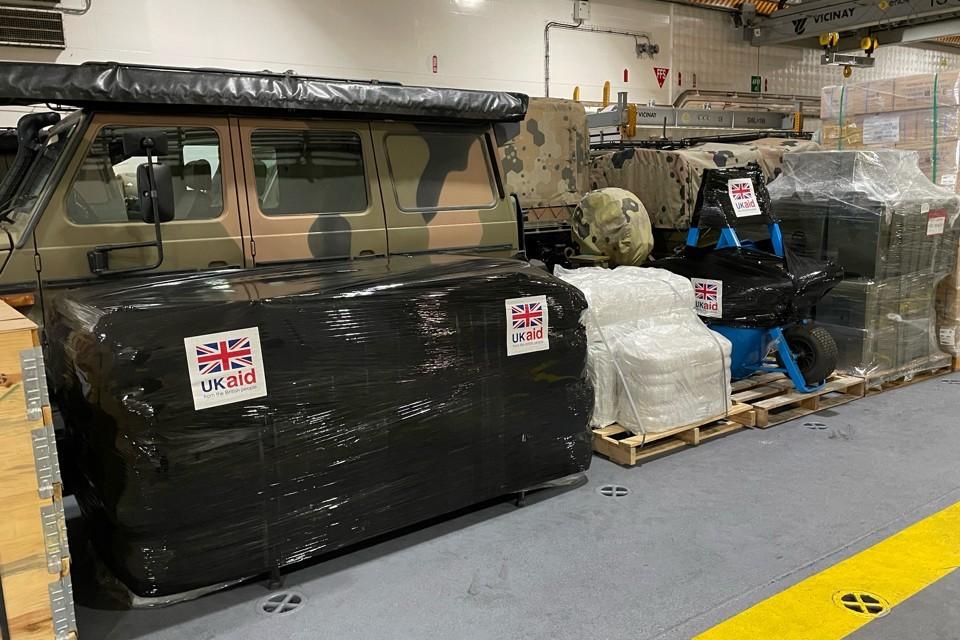
Britain is becoming a model of what a smaller partner in the Pacific should be. Since announcing its Pacific Uplift policy five years ago, Britain has taken small but stable steps in building its presence and delivering support, with a focus on filling in gaps in the assistance delivered by like-minded primary security partners in the region, such as Australia, the US, New Zealand and France.
While it will never be one of the largest partners in the region—nor should its focus stray too far from threats closer to home—this is how Britain can best maximise the value of its support, ensuring that its engagements and programs don’t overlap with existing assistance and that they build on existing networks.
This means listening to Pacific partners and like-minded diplomatic and security officials in the countries to understand where others aren’t already delivering support and then financing projects, delivering training, providing humanitarian and disaster relief supplies and bringing in supporting ships where and when they are most needed.
Britain is already doing many of these things well but on a small scale. Now it is time to build on the successful initiatives it has implemented in the region and solidify its place as a leader of smaller partners.
By its own admission, Britain stepped too far away from the Pacific in the century. In 2019, with Brexit looming months ahead, it sought to signal to the Pacific region its intent to revitalise its engagement and support. The Pacific Uplift, aligned with Australia’s Pacific Step Up and New Zealand’s Pacific Reset, saw expansion of British diplomatic presence and led to deployment of two Royal Navy patrol ships to the Indo-Pacific in 2021.
By opening or re-opening three more high commissions, Britain now has six embassy-level missions in the region, behind only Australia, New Zealand, Japan, China and the US. But as a development partner, it is further behind.
Data from the Lowy Insitute’s Pacific Aid Map shows that in 2021, the latest year for which figures are available, Britain ranked 17th among donors to the region, although its former contributions through EU aid are counted separately. Many of the largest UK projects since data collection began in 2008 were focused on support to the British overseas territory of the Pitcairn Islands.
Money talks in the Pacific, but it isn’t the only way to have a positive impact there. Papua New Guinea, Solomon Islands and Tuvalu, like Australia and New Zealand, are Commonwealth realms with King Charles III as head of state. Six other Pacific countries—Fiji, Kiribati, Nauru, Samoa, Tonga and Vanuatu—are also members of the Commonwealth.
Through the Commonwealth, Pacific island countries pursue common goals and values with Britain and other like-minded countries on a range of security issues—for example, by participating in the Commonwealth Parliamentary Association’s Conference on AI, Disinformation and Parliament. Samoa will host the Commonwealth Heads of Government Meeting in October this year.
Britain’s engagement isn’t as heavily scrutinized as that of Australia or the US. Likely reasons include its scale of engagement and the modest level of popular interest. Sentiment analysis of online comments in Pacific island countries demonstrates that, despite being part of AUKUS, Britain is rarely, if ever, singled out for criticism or comment when security pact is discussed.
By not being bogged down in long-standing assistance packages and geopolitical tensions, Britain has been able to be agile in its approach and has so far listened well to the needs of the Pacific.
British renewable energy and climate-change adaptation projects work to address the single greatest threat to the region. Alongside initiatives like providing media training through BBC Media Action to Solomon Islands, these activities demonstrate British commitment to reinforcing efforts of the Pacific’s other development partners or filling gaps that they’re not addressing.
Britain’s defence engagements are similarly aimed at providing value without adding immensely to the burden of time-constrained Pacific security forces and governments, which welcome greater assistance but cannot give more time to its delivery at the cost of other commitments.
In 2021, the patrol ships HMS Spey and Tamar were deployed to the Indo-pacific region for at least five years. Their crews train alongside Britain’s allies, carrying out maritime security and constabulary patrols to address transnational issues such as smuggling, terrorism and other illegal activities and undertake defence engagement visits across Pacific island countries, Southeast Asia and the Indian Ocean.
As well as undertaking smaller operations, since 2022 the ships have participated in Pacific Partnerships, the largest annual multinational preparedness mission for humanitarian and disaster relief conducted in the Indo-Pacific. In the 2022 mission, Tamar worked alongside nearly 1500 personnel from Australia, the US and Japan in Palau and the Philippines.
Coordination is essential in a crisis, as when the submarine volcano Hunga Tonga-Hunga Ha’apia’s eruption climaxed in January 2022. Spey moved to Tahiti to collect relief stores to be offloaded in Tonga’s capital, Nuku’alofa, and Britain also coordinated for additional assistance to be delivered on Australia’s HMAS Adelaide.
The presence of the patrol ships has also enabled Britain to pursue shiprider agreements in the region, in which countries mix personnel and vessels to bolster local constabulary work. Spey visited Fiji in March 2022 to for the signing of a shiprider memorandum of understanding in which the Royal Navy and Fijian civil and military maritime authorities will cooperate in combatting such illegal maritime activity as illegal fishing and drug smuggling. Putting this agreement into practice, Tamar has just conducted a first joint patrol with New Zealand and Fiji, operating in Fiji’s exclusive economic zone.
If Britain wanted to step up further in this space, it should commit more ships to the region, and, like Australia, seek to develop a stronger maritime advisory presence.
Britain is leading the way in demonstrating how secondary supporters of Pacific island countries can offer boutique, highly skilled and well targeted assistance packages. Now it’s time to focus on scaling up that assistance to reach more countries across the region more frequently.